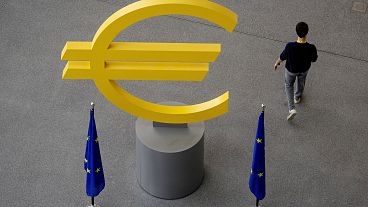In a landmark move, Turkey has now been taken off the Financial Action Task Force (FATF)’s "grey list", a decision which is expected to go a long way in supporting the country's economic recovery.
The decision follows a recent FATF meeting with Turkish authorities, during which the organisation decided the country was taking satisfactory steps to reduce money laundering and not being stringent enough over financing for terrorism organisations.
The FATF's announcement means a potential boost in investor and consumer confidence in Turkey again which should help bolster the country's economic and financial systems and provide a way out of the serious economic decline it has been in for some time.
The financial crisis is mainly due to soaring inflation, left unchecked for months because of Turkey's unconventional monetary policies backed by President Recep Tayyip Erdogan, who had previously gone on record to say that he believed that higher interest rates caused inflation.
When the strategy failed, Turkey did a sharp reversal under the then central bank governor Hafize Gaye Erkan, raising interest rates significantly. That in turn led to businesses and households suffering because of the increased debt burdens. Turkey’s housing market also soared simultaneously, with rents and mortgages quickly becoming unaffordable for many.
However, now that the country is officially off the grey list, more foreign businesses, investors and global banks are expected to return, with output, exports and consumption also likely to bounce back.
Turkey's Interior Minister Ali Yerlikaya said on social media platform X, as reported by Associated Press: "We will with determination continue our fight against organised crime organisations, the traffickers of poison (drugs), the immigrant smuggling rings, the money-laundering criminal groups, and especially, against the financing of terrorism and of those traitors."
What are the FATF’s grey list and black list?
FATF, the international money laundering watchdog, had put Turkey on the grey list back in 2021, following increased concerns that the country was playing a large role in terrorist financing and money laundering.
That was mainly because of the country's lack of regulatory oversight in terms of property, banking and other sectors, with regard to terrorism financing and money laundering for groups such as al Qaeda and the Islamic State.
Known internally as the "Jurisdictions under increased monitoring”, the grey list contains countries which have already identified gaps in their terror financing, proliferation financing and money laundering prevention laws and are striving to work with the FATF to remedy these pitfalls as soon as possible.
This usually means that there are certain goals that these countries have to meet within specific time frames for them to be removed from the grey list. Until then, the countries are subject to increased scrutiny. Some other countries currently still on the FATF grey list include Bulgaria, Croatia, Kenya, Namibia and the Philippines.
If the agreed goals are not met and things deteriorate further, countries can also be returned to the FATF's black list, which contains countries which have alarming strategic inefficiencies in terrorism financing, money laundering and proliferation financing. In these cases, the FATF often advises all its members to level up their due diligence.
In some cases, when this is not enough, international counter-measures may also be applied, in order to prevent a spillover effect from countries on the black list to the entire financial system.















